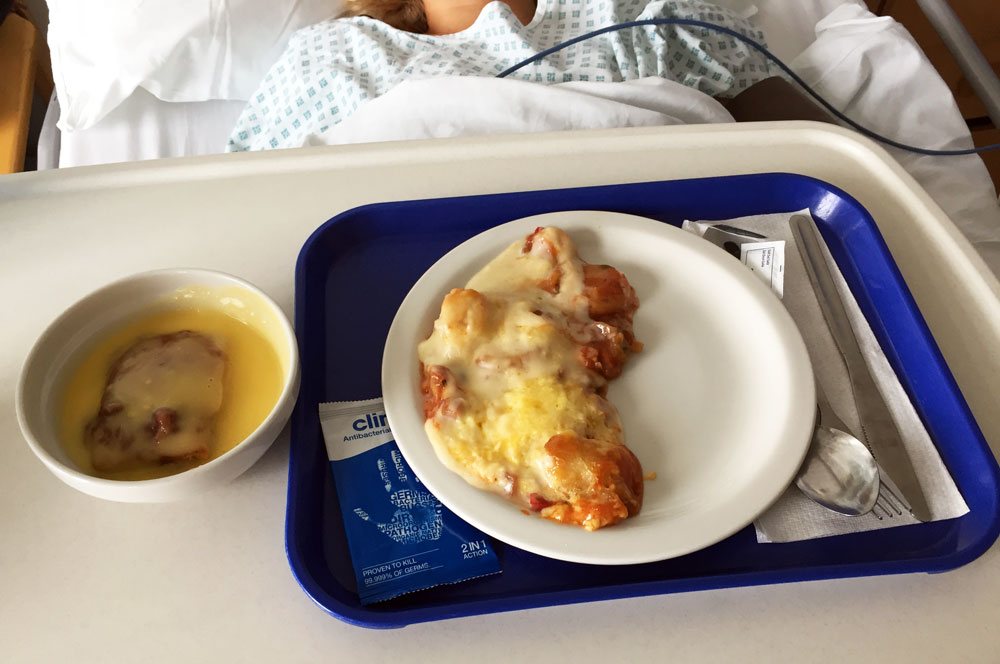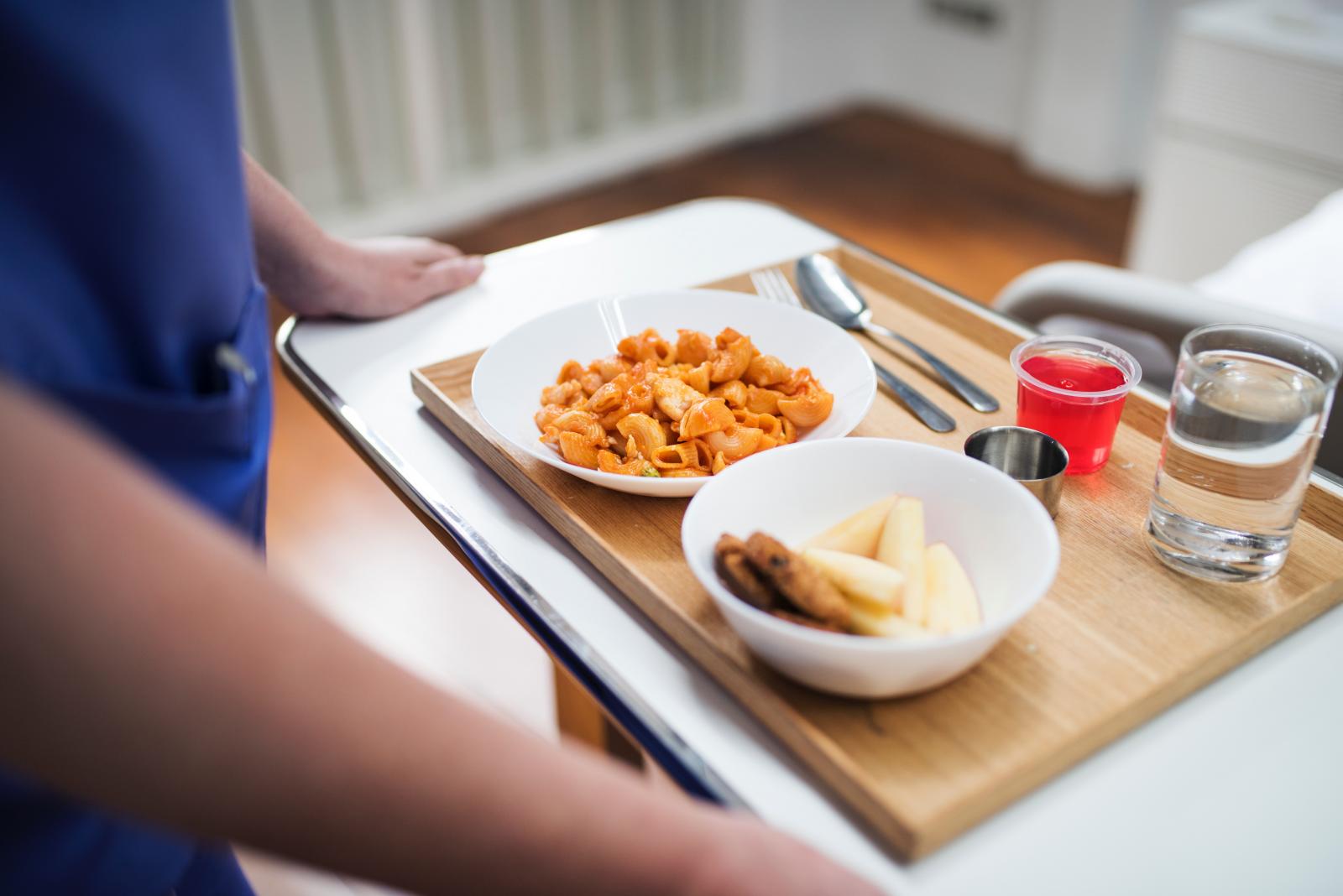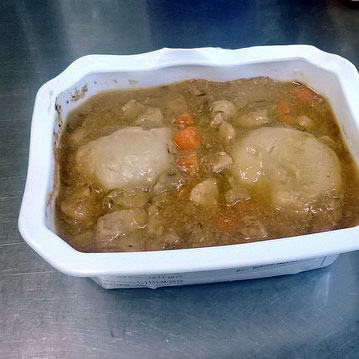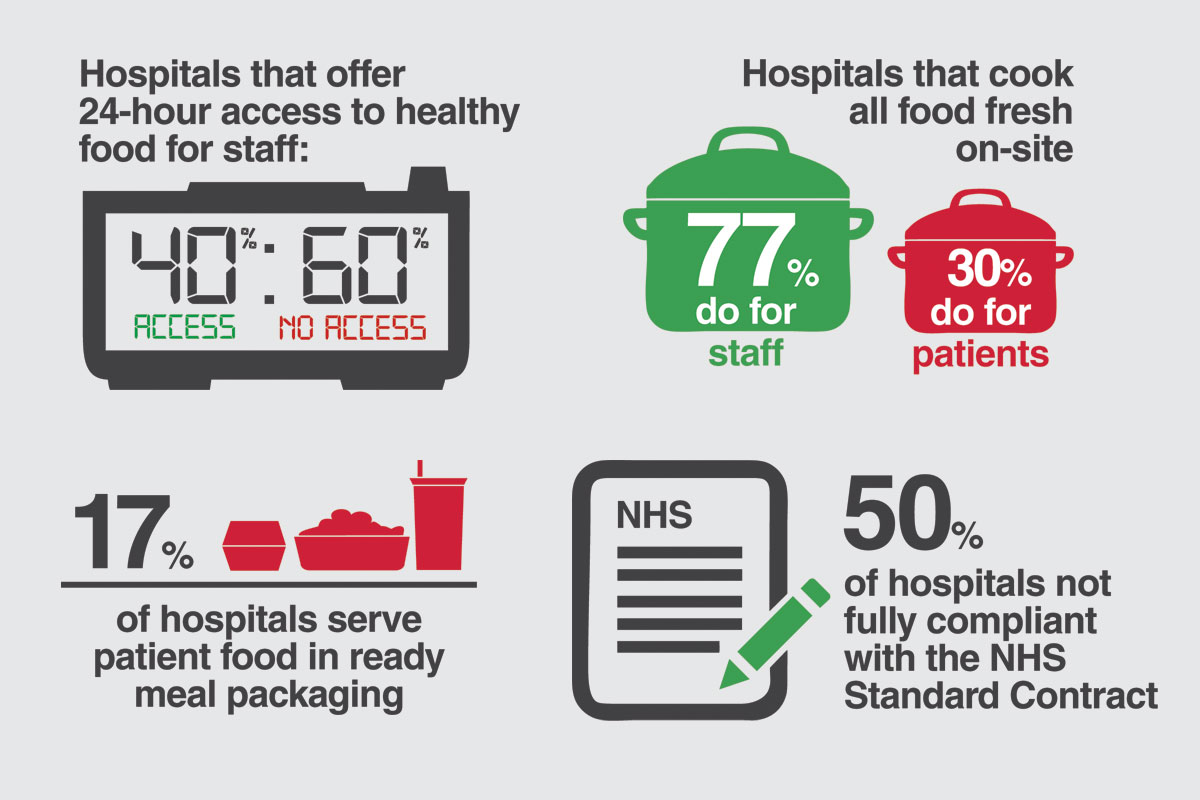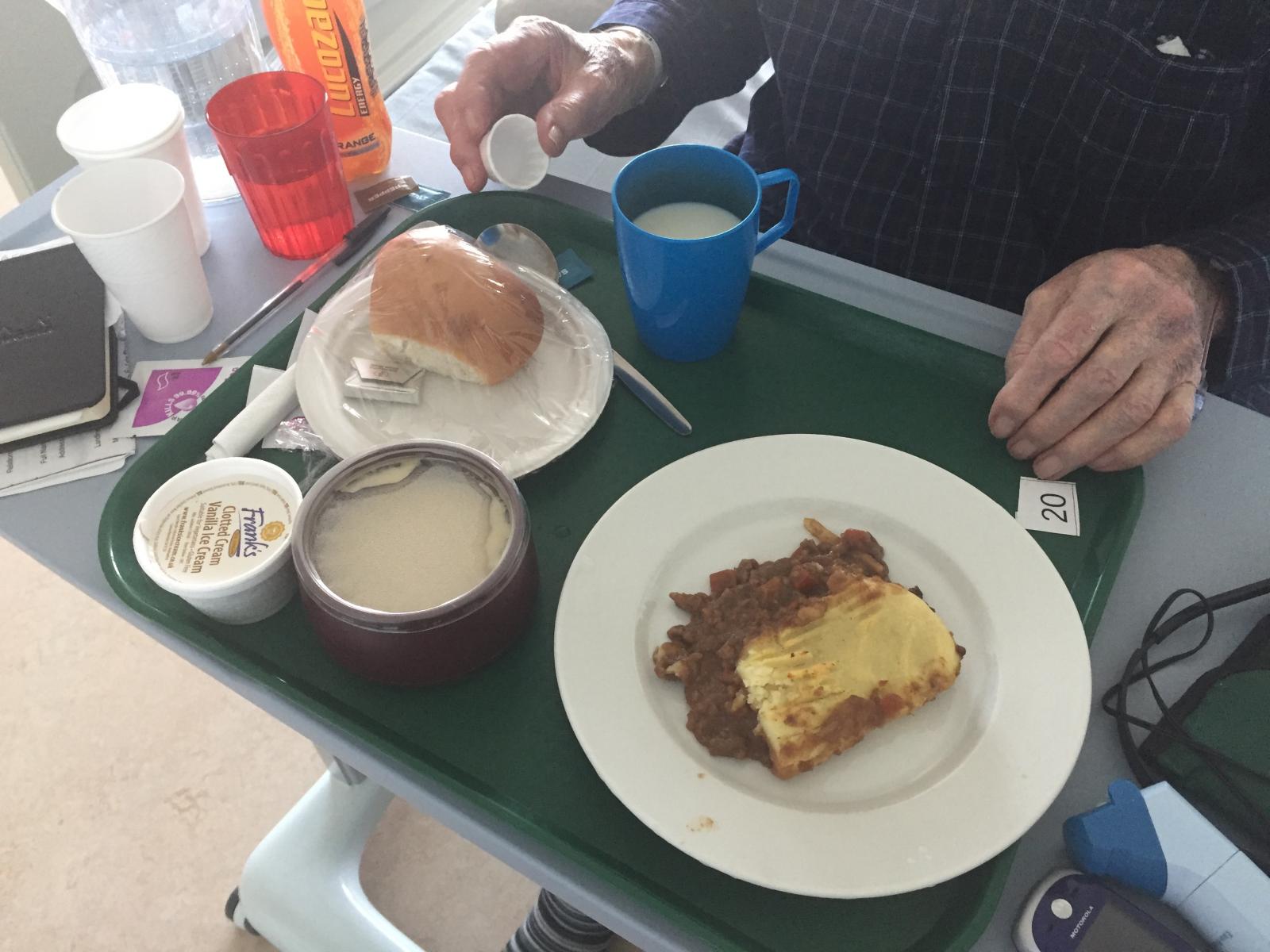Anger as prisoners are eating better than patients in hospital
Campaigners claim voluntary standards are flouted by many hospitals, even though their managements say they fulfil them.
The Campaign for Better Hospital Food renewed calls for ministers to enforce minimum standards for the quality of food served to patients.
The organisation found that one in three hospitals is not meeting the criteria for the amount of Fairtrade tea and coffee served under Government Buying Standards – despite saying they are.
These standards state that half of tea and coffee served should meet Fairtrade standards.
They are mandatory in Government departments and prisons – but are voluntary for hospitals.
Of 30 hospital trusts in England which said they were compliant with the standards, including five mental health trusts, 12 did not meet the benchmark criteria.
The campaign says ministers have rejected calls to make the standards mandatory for patient meals and claim that half of hospitals are already voluntarily adopting them.
Campaign co-ordinator Alex Jackson said: “We have had enough of the Government using poor excuses and fiddled figures to justify why it won’t introduce mandatory quality standards for patient meals. Their refusal to do this is appalling and inexplicable and is an affront to thousands of hospital patients and to their families.
“Ministers must be living on another planet if they think it is acceptable to set standards to improve meals served to prisoners but not to sick patients.”
Caroline Abrahams, charity director at Age UK, said: “Ensuring that older people get a good balanced diet in hospital is essential for a speedy recovery.
“Making sure that older people get all the nutrition they need is about more than just making sure that all the different food groups are on a plate.
“Malnutrition and dehydration can be a real risk for patients if they go unnoticed and untreated. Food needs to be appealing because many people can experience a lack of appetite when they are not feeling well.”
Health Minister Dan Poulter said: “There are many fantastic examples of really good food across the NHS thanks to forward thinking and innovative staff.
“But we recognise that there is too much variation across the country – that is why we have brought in a new inspection programme, led by patients, to help to raise standards.
“We have also asked Dianne Jeffrey, the chairwoman of Age UK, to head our food standards panel to look at how to improve standards of hospital food right across the NHS.”
Dr Poulter added: “We support the principle of food standards but we do not think that legislation is the right way to proceed.
“We believe that the best decisions on hospital food are those taken locally by chefs and catering managers.
“Patients are the ones who consume hospital food and they are best placed to decide what is good and what is not.”
Earlier this year, figures from the Health and Social Care Information Centre showed the average amount spent daily on a patient’s meals is £9.87.
Figures vary dramatically around the country.
Many hospitals are giving meals to patients which cost as little as £1.38 – less than half the £3 to £4 that some charge visitors for an hour’s parking.
31 December 2013
Daily Express
Published Tuesday 31 December 2013
Better Hospital Food: The campaign represents a coalition of organisations calling on the Westminster government to introduce mandatory nutritional, environmental and ethical standards for food served to patients in NHS hospitals in England.
